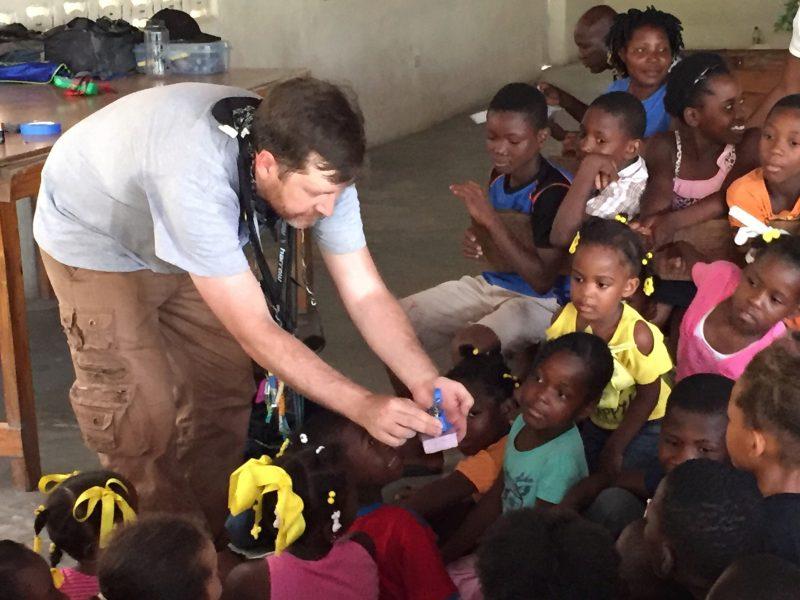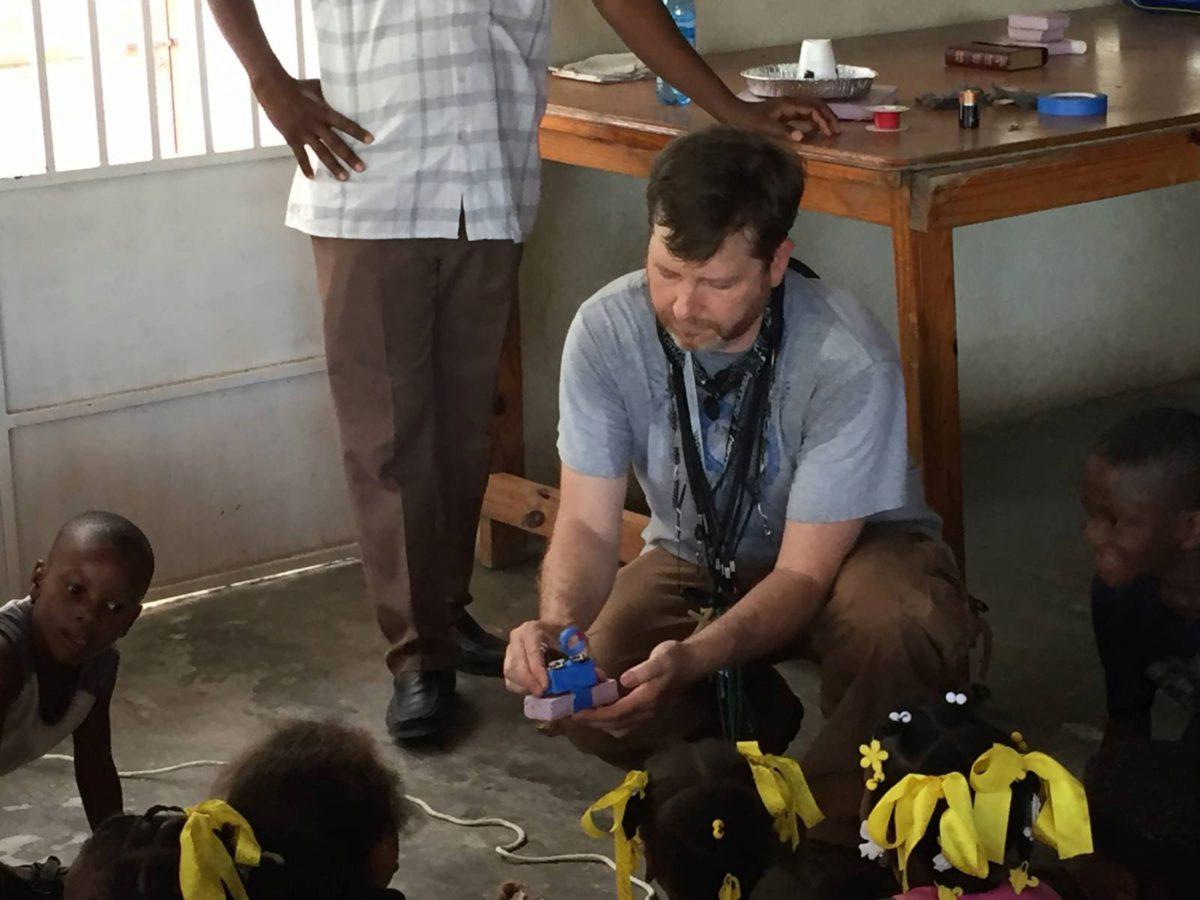
You can learn a lot about someone in just five minutes, and first impressions can leave a lasting impact. Sometimes, it only takes five minutes to learn something new, connect over shared interests, or change a person’s mind. It’s just enough time to leave an indelible mark that can last a lifetime.
Today, we sat down with ECE Professor Jeff Davis for five minutes to see what we could discover.
Armed with over a decade of electrical engineering education at Tech, Jeff Davis uses his knowledge to look for ways to improve the world around him.
Davis, associate professor in the School of Electrical and Computer Engineering, obtained his undergraduate, masters, and Ph.D. degrees from Georgia Tech. He has worked as a faculty member ever since.
“I like exploring new ideas and it seemed like the best place to be,” Davis said. “That’s what attracted me about Tech.”
Davis truly enjoys being a mentor to students, regardless of their age. Through his involvement in Tech’s student faculty committee, he helped create a Lego robotics competition for middle school students when he found that some students were interested in community outreach.
The program grew exponentially in its first 10 years, and is now known as the Georgia FIRST Lego League. Georgia Tech hosts the state championship tournament for this competition every year. The program now facilitates hundreds of teams all across the state and is handled by the Center for Education Integrating Science, Mathematics and Computing. Davis says that growing this program, which is often a student’s first experience with robotics, was one of his defining moments at Georgia Tech.
Davis’ penchant for impacting both students and society carries over to his involvement with the Grand Challenges Living Learning Community, where he is the faculty co-director of the program. The program, which students can participate in for their entire time at Tech, organizes students who are passionate about saving the world into groups that will aim to solve the biggest issues facing humanity, such as agricultural issues, lack of clean water, human trafficking, lacking education systems and many more. He says the program aligns closely with his philosophy and he loves teaching and interacting with the students.
Davis himself is interested in helping his fellow humans. On several mission trips to a small mountain village in Haiti called Chadic, he and fellow members of his church have tried to help the leaders in the community expand agriculture through growing coffee, building a centralized filtration system for clean water and helping construct a school for the children.
“I love going to Haiti,” said Davis. “Although my French Creole is limited, I have found that working alongside the community is the best way for them to know that you care for their well-being.”
Davis was attracted to Tech because he recognized a place where he could explore new ideas and make a difference. Teaching itself creates a huge impact on the hearts and minds of students, and research can also have positive influence on the world. Davis might even be able to help the environment through his research.
Discoveries made in his lab, which investigates the electrical properties of nanocomposite materials, could potentially have significant benefits on the environment as well as waste management. Through the creation of capacitors that could be used to replace the traditional lithium-ion battery as a better form of energy storage, harmful waste produced by the disposal of batteries could be decreased.
Between all of this, when he has the spare time, Davis likes to work with his hands.
“I think that’s why I’m more of an engineer than a scientist – I like to build things. I like to see them working,” Davis said. “I think any hobby that has a result, either an artistic result or otherwise…there’s something very satisfying about that for me.”
Perhaps working on an extremely small scale with wires and even materials on a nanoscale gives him an exceptional attention to detail; in any case, Davis enjoys making things and making a difference, from outreach programs to microchips.
